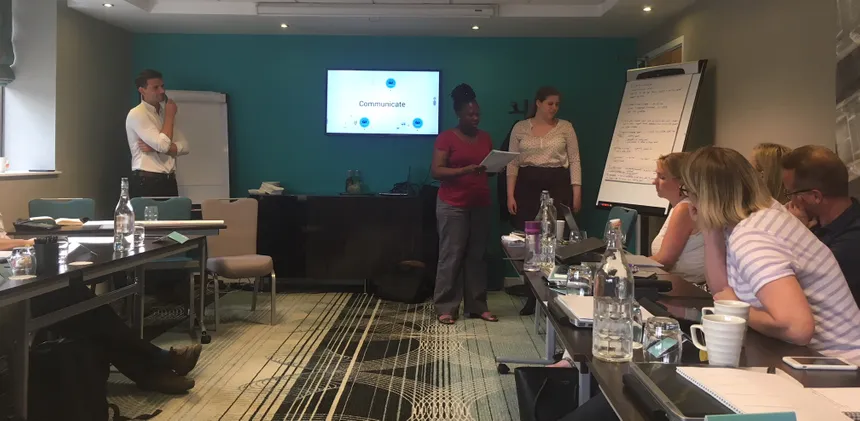Understanding Humans Lessons from British Military Intelligence

Originally published by Leigh Kendall – 13th July 2018
How often do you find yourself thinking “Why on earth do they do that?” Or been puzzled by someone’s opinions on politics, religion, football…? There are many issues on which we humans are diametrically opposed, which is how misunderstandings and conflict arise.
The NHS Horizons team recently had a brilliant training workshop with Kyle Hughes from Applied Influence Group. Kyle and his colleagues have a background in military intelligence, and share the benefit of their experience gained while on tours of Afghanistan, working with the Taliban.
We pondered the question: what compels someone to join the Taliban? Why do people volunteer to be suicide bombers? For many of us, these decisions seem incomprehensible. As Kyle explained, to be able to work with Taliban members they needed to understand their motivations: to see things from that person’s point of view. This includes looking at their desires and fears.
The motivations for people joining the Taliban could include a desire for power, status, honour, vengeance (against the invading forces), while fearing dishonour, defeat, the loss of their family and home. In other words, the decision made perfect sense to them in the context of their own individual circumstances.
These are lessons that we can use when seeking to influence sustainable change in health and care. While we are not dealing with such extremes as the military, there are frequently conflicts and misunderstanding, leading to impasse, frustration, and dissatisfaction.
We see this not only in a physical context, but in discussions in forums like Twitter, too. Many times I have observed and been involved in conversations where ‘sides’ have been diametrically opposed.
You don’t have to agree with views and opinions that are different to your own. For the sake of progress, though, taking the time to understand those views and opinions is always a worthwhile investment.
Remember that having a spectrum of allies – diversity of thought, is always useful.
How do we find out the views and opinions of those with whom we disagree?
A simple way is to ask.
Be inquisitive, ask questions such as what matters to you? And listen, really listen, to the answers. Conversations can help improve understanding on both sides, and avoid reactance (people doing the exact opposite of what they are told to do).
If asking isn’t possible, take the time to reflect. Think what you know about the person, or people. Ask yourself:
- What do you know about that person/people?
- What is their background?
- What might they desire, or fear?
- How do they like to communicate, and what is their communication style (you can find this out by looking at things like Twitter and LinkedIn, or asking mutual contacts)
- Find out what they are interested in to help build rapport, find common ground, and hopefully break the impasse.
I’ve found these tactics useful for creating communications and engagement plans, and on Twitter to help defuse misunderstandings. It’s often not about who is ‘right’ and ‘wrong’, or winning an argument, but investing energy in understanding our fellow humans.
Morality binds and blinds. It binds us into ideological teams that fight each other as though the fate of the world depended on our side winning each battle. It blinds us to the fact that each team is composed of good people who have something important to say.
